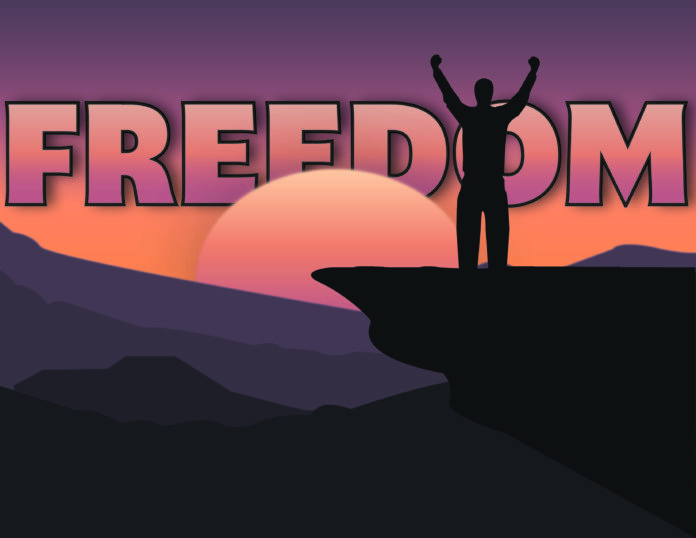Every day you wake up and do things you hate. Maybe you go to a job that irritates you, or you study a subject that you find uninteresting. Regardless, you suffer.
You do these things because in the back of your mind, or even before your eyes, there exists a sea of homeless people whose fate you wish to avoid.
Maybe you are a homeless person, or close to becoming one. If so, you acquired your station through suffering, and now suffer in perpetuity.
All of us, whether employed or not, housed or un-housed, confine ourselves to this realm of pain. We tell ourselves there is no other way. We can’t all go off, enjoying this wide open world and everything in it. We can’t just spend our days doing the things that give free expression to our souls.
Why not? An academic would answer: Because you signed a social contract. Social Contract theory is the myth that merely by existing in a society we have agreed to be dominated by the state. By extension, we also agree to be dominated by petty tyrants: our unlikable bosses, our parasitic landlords, and our violent cops.
The problem with this theory is that none of us have actually signed a contract. None of us have agreed to limit our liberties and subject ourselves to lives of servitude.
The contract, like authority itself, is imaginary. Once we realize that there is no physical barrier preventing us from doing the things we want, perhaps we will view law and authority in a different light.
Laws are not real. Like the Social Contract, they are abstractions that those in power tell us exist so that they can limit our behavior. Likewise, authority does not exist. Authority is not a gift bestowed upon cops and politicians from the heavens. Nor is it a physical reality. Authority is a quality we pretend exists in those who threaten us.
Once we acknowledge that there are no boundaries between ourselves and the things that could make us happy, the only question is: Why not push beyond our self-imposed limits and attain self-actualization?
Anarchy is not, contrary to popular belief, an ideology of destruction. Rather, it is the belief that every human being is completely free. This freedom ought to be recognized by everyone else. Anyone who attempts to limit that freedom, without the actual consent of the individual, is an illegitimate authority.
Instead of a made-up contract imposed on individuals from above, anarchists wish to choose for themselves what restrictions (if any) ought to apply to their behaviors. People ought to be free to create their own communities, agree upon rules to govern that community with their peers, and leave or stay as they deem fit.
Humans have existed for 200,000-300,000 years. Only in the last 10,000 have we limited ourselves to geographic locations and subjected ourselves to laws imposed from above.
The result has been catastrophic. Humans have engaged in wars so destructive that life on planet earth is now threatened. Our way of life depends upon endless resource extraction that will leave our world a lifeless, burning husk.
This is the result of deference to imaginary authority. Rather than wandering the beautiful expanse of the North American landscape, we confine ourselves to unhappy lives that contribute to the destruction of the world itself.
Humans are meant to wander and roam. We are meant to live off the earth and form lasting bonds with those closest to us. There is nothing stopping us from doing this.
There is also nothing stopping homeless people from commandeering housing that they find vacant; tenants from declaring their homes are theirs; or the starving from enjoying the food that exists all around them.
The police stand in the way. When people reject the authority of the state, they face the wrath of this warrior caste. Indeed, police will show themselves for the barbarians they are when the common people break free from their mental chains.
Yet, the police are one hundredth the size of the Las Vegas population at large. If, for example, tenants simply refused to pay rent and claimed the building as their own, and their neighbors followed suit, no police force could stop them all.
True anarchy would require social solidarity and the belief in the value of every human being. The world will run out of resources someday. Our way of life will end. If we wish to avoid the caricature of anarchy—a post-apocalyptic dystopia akin to Mad Max—we must start planning for a positive, liberating anarchy that improves the welfare of the planet, and of our species.
So the next time you walk outside on your way to work, and see the beauty of the mountains on the horizon, ask yourself what you must do to create a world where you are free to enjoy those mountains and all the glory of nature. The answer is more uplifting than you’d ever imagine: believe in your own self-worth, and break free from the prison in your mind.


Awesome article, the dividing line between where we are and where we want to be is not actually a barrier, but a mere mark in the sand. I think the division happened when God apparently struck humanity from reaching him during the tower of babel construction; our semantics get in the way of the expression of the truth and instead keep us trapped in a realm of logical and technical discourse, contacts and bondings.